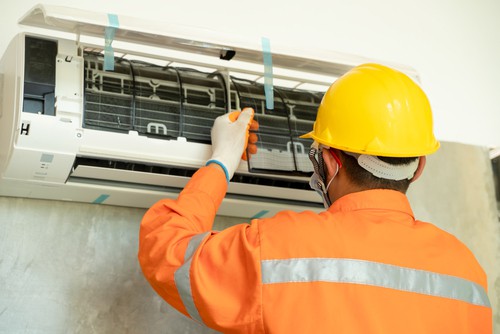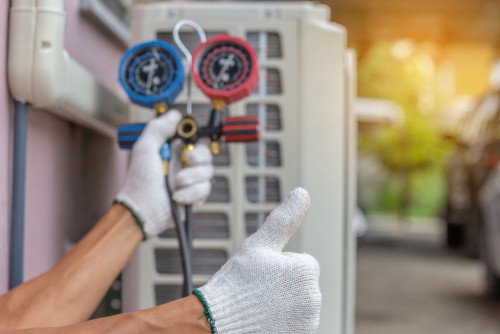
How To Setup Aircon For Shopping Mall
November 16, 2019
Aircon Repair Guide For Dummies
November 16, 2019Is Too Much Aircon Bad For Health?

With the advent of technology, man has continually succeeded in customizing conditions for his survival. Technology has been used in almost all aspects of life. Due to man’s productive activities, the environment has changed; weather patterns have become unpredictable with some places becoming too hot or too cold unlike before. Rainfall patterns have as well changed. As such, aircon activities have become the order of the day to make the life comfortable. It is an attempt to reverse the air conditions to where it was before too much damage had been done. People use air conditioners in almost all premises; homes, offices, restaurants, meeting rooms and so on. Air conditioners help to create an artificial environment as preferred by the room occupiers. They are therefore used on a daily basis since they are easier to control than having to wait for the natural changes to occur. When it is too hot for instance, they help to cool down the room by allowing cool fresh air to come in the room. Similarly, they can be used to heat up a room to a given extent as set by the user. However, air conditioning has been noted to pose health dangers to people who excessively use them.
To begin with, too much air conditioning has been found to make people heat intolerable. Individuals who are exposed to air conditioned houses for so long become used to customized conditions in those houses. As such, their bodies strain to adapt to environments that are not as customized as what they have been used to. Outdoor conditions, which will greatly differ from the indoor air-conditioned environments, will become a big problem to such people to dwell in them. The may develop feelings of exhaustion due to exposure to outside heat. They often experience problems such as headaches, dizziness among others. It becomes a problem since such people will not be in a position to cope with unconditioned environments, which implies that their productivity outside the rooms they are used to is compromised.
Another possible problem people are likely to develop because of too much air conditioning include colds as well as respiratory problems. Air conditioners help in ensuring that the airflow in the house is well maintained. As such, the air in the house tends to become drier than how it should be for our bodies. The implication is that the body fluids excreted by the body through the skin tend to be brown away little by little. The mucus on the respiratory system is no exception. It is carried away. Having the skin dry leaves the body, especially the respiratory system, vulnerable because the protection has been removed.
Moreover, too much air conditioning has been found to lead to worsened allergies and ear irritations. For people who normally have allergies on exposure to summer conditions, too much-unmaintained air conditioning worsens the conditions. The point is, the body of such a person is already weak and faces challenges dealing with hot conditions. Instead of helping the body to be hardier, the conditions created by too much air conditioning makes the body worse of. It becomes programmed that there must be an air conditioner for the body to withstand summer conditions. When such people are exposed to hot conditions with the absence of air conditioners, they tend to be affected more than they would have been affected if they were not used to air conditioning.
Similarly, if people are continuously exposed to air conditioned environments that may be having mold in circulation, it accumulates and collects in one’s folds of the ear. The result is that it makes the ear dry out increasing the possibilities of bleeding. Air conditioners mostly draw air from outside, which in most cases is not treated. Its chances of containing mold are high and, it draws the mold to the people inside of the room where people are. Furthermore, if a low-quality air conditioner is used, it is likely to produce constant noise while running. The noise from such air conditioning systems has potentially been found to contribute damage to the hearing system.
Another health hazard associated with too much air conditioning is that it enhances the spread of airborne diseases. Air conditioners circulate the air throughout the room. As such, if there is a person suffering from any airborne disease, air conditioning will increase the chances of the colleagues being infected with such diseases. When one sneezes or coughs, the germs are circulated in the house or office for the substantial amount of time. Unaffected people will end up breathing the germs as long as they remain inside the room. Moreover, if there is some dust or powder in the room, which may affect the health of people, if not kept well, it will be spread and get into the respiratory systems of the people in the room.
Besides, air conditioned buildings to lead to sick building syndrome. It has been found that people who spend most of their time in air-conditioned buildings are more likely to show symptoms of diseases than those who spend most of their time in natural environments. Being in an air-conditioned environment compromises the ability of the body to cope with any environment it comes across. As such, if the person finds themselves in areas away from the air conditioners, they will face problems as they try to adapt to such environments. In other words, too much air conditioning weakens the body and makes it susceptible to environment-related diseases.
In conclusion, air conditioning plays a major role in making the indoor conditions tolerable. However, it should only be done to a given extent or otherwise the body will become weaker and susceptible to health problems. Air conditioning should be used at the extreme conditions when it becomes increasingly difficult to operate in such environments. Air filtering should be adapted to ensure that the air that comes into the room is clean. If air conditioners have to be used, they should be of good quality and well regulated. People should also try as much as they can exposing their bodies to natural conditions to harden them.



